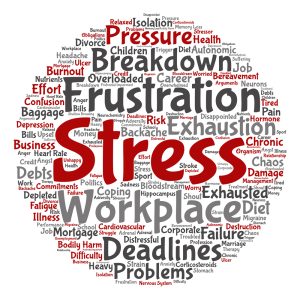The Emotional Freedom Technique (EFT) is a scientifically proven method to regulate cortisol, the stress hormone, and promote a sense of calm and mental equilibrium. By tapping on specific points on the body, EFT triggers a cascade of neurological responses that help reduce stress and anxiety. In addition to cortisol reduction, EFT has been shown to have psychological and physiological benefits, making it a valuable complementary therapy for stress management. However, further research is needed to explore its limitations and potential future directions. Here are the key takeaways:
Key Takeaways
- EFT tapping acts as a maestro, orchestrating a reduction in cortisol levels and promoting a sense of calm.
- Research studies have validated that EFT helps in reducing the levels of cortisol, among other significant biological effects.
- EFT has been proven effective for treating veterans suffering from PTSD, with positive effects observed after just a few sessions.
- EFT has shown promise in reducing chronic pain symptoms, such as tension headaches and fibromyalgia.
- EFT tapping can help individuals overcome fears and phobias, providing long-lasting relief.
The Science Behind EFT and Cortisol Reduction
The Role of Cortisol in the Body
Cortisol, commonly known as the stress hormone, plays a significant role in our body’s response to stress. It is released by the adrenal glands in moments of stress and triggers a series of physiological and psychological responses. Understanding cortisol and how to manage it can help promote overall well-being and reduce the negative effects of chronic stress.
One important aspect of cortisol regulation is its association with the stress response. When the body perceives a threat or experiences stress, cortisol is released to prepare the body for action. It increases blood sugar levels, enhances the brain’s alertness, and suppresses non-essential functions such as digestion and immune response.
Research studies have shown that high levels of cortisol over an extended period can have detrimental effects on health, including increased risk of obesity, cardiovascular disease, and mental health disorders. Therefore, it is crucial to find effective strategies to regulate cortisol levels and mitigate the negative impact of chronic stress.
EFT tapping, also known as Emotional Freedom Techniques, has emerged as a scientifically proven method to regulate cortisol. By tapping on specific acupuncture points on the body, EFT tapping sends signals to the brain’s fear center, the amygdala, indicating that it is safe to stand down from high alert. This triggers a cascade of neurological responses, leading to a reduction in cortisol levels and promoting a sense of calm and mental equilibrium.
 In addition to its role in cortisol regulation, EFT tapping has been found to have various psychological and physiological benefits. Studies have shown that EFT tapping can improve emotional well-being, reduce anxiety and depression symptoms, and enhance overall quality of life. Physiologically, EFT tapping has been associated with improved heart rate variability, decreased blood pressure, and enhanced immune function.
In addition to its role in cortisol regulation, EFT tapping has been found to have various psychological and physiological benefits. Studies have shown that EFT tapping can improve emotional well-being, reduce anxiety and depression symptoms, and enhance overall quality of life. Physiologically, EFT tapping has been associated with improved heart rate variability, decreased blood pressure, and enhanced immune function.
As a complementary therapy for stress management, EFT tapping offers a non-invasive and accessible approach to regulate cortisol and promote overall well-being. However, further research is needed to explore its long-term effects, optimal dosage, and potential limitations.
In conclusion, understanding the role of cortisol in the body and effective strategies to regulate its levels is essential for managing stress and promoting overall health. EFT tapping has emerged as a scientifically supported method to regulate cortisol and offers various psychological and physiological benefits. Incorporating EFT tapping into daily practice can be a valuable self-gifting approach to promote tranquility and restore mental equilibrium.
Understanding the Stress Response
The stress response is your body’s natural way of reacting to stressors—and it can often be a good thing. It helps you stay alert and able to respond to acute situations. However, chronic stress can have detrimental effects on your physical and mental health. Understanding the stress response is crucial in managing stress effectively.
One important aspect of the stress response is the release of cortisol, commonly known as the stress hormone. Cortisol plays a vital role in regulating various bodily functions, including metabolism, immune response, and blood pressure. When faced with a stressful situation, cortisol levels rise to prepare the body for a fight-or-flight response.
To regulate cortisol levels and promote a sense of calm, Emotional Freedom Techniques (EFT) can be utilized. EFT tapping involves gently tapping on specific acupuncture points on the body while focusing on the stressor or negative emotion. This rhythmic action sends signals to the brain, signaling it to dial down the stress response and reduce cortisol levels.
Research studies have shown the effectiveness of EFT in reducing cortisol levels and alleviating stress-related symptoms. By incorporating EFT tapping into your stress management routine, you can cultivate resilience and empower yourself to navigate challenges with grace.
In summary, understanding the stress response and its connection to cortisol regulation is essential for effective stress management. EFT tapping offers a scientifically proven method to reduce cortisol levels and promote a sense of calm. By incorporating this practice into your routine, you can enhance your ability to cope with stress and improve your overall well-being.
Introduction to Emotional Freedom Techniques (EFT)
Emotional Freedom Techniques (EFT), also known as Tapping, is a therapeutic method that involves tapping on specific meridian points on the body. These meridian points are believed to be connected to the body’s energy pathways, similar to those used in acupuncture. By tapping on these points, EFT aims to release emotional and physical distress, reduce stress, and promote overall well-being. The technique involves a five-step process that targets nine meridian points to reduce or remove the intensity of symptoms. EFT is known for its simplicity, effectiveness, and cost-effectiveness compared to conventional therapies.
The Mechanism of Action of EFT
EFT, also known as Emotional Freedom Technique, combines elements of acupuncture and psychotherapy. The practitioner uses their fingertips to tap on specific energy meridians while voicing positive affirmations. This process helps release blocked energy and promotes emotional well-being. By tapping into the body’s energy system, EFT aims to restore balance and alleviate emotional distress.
Research Studies on EFT and Cortisol Reduction
Research studies have validated that EFT helps in reducing the levels of cortisol (aka, the stress hormone), among other significant biological effects. EFT has been proven very effective for treating veterans suffering from PTSD. Studies show the positive effects of EFT only after the first 3-4 sessions. Reduction in chronic pains has also been observed with the use of EFT.
Effects of EFT on Cortisol Levels
EFT tapping has been shown to have a significant impact on cortisol levels, the stress hormone. Through the rhythmic action of tapping, the body interprets this as a signal to dial down the stress response, leading to a reduction in cortisol levels. This scientifically proven method promotes a sense of calm and restores mental equilibrium. Research studies have validated the effectiveness of EFT in reducing cortisol levels, providing a valuable tool for stress management and emotional well-being.
Psychological Benefits of EFT
Reduction in stress, anxiety, and depression: A 2014 study by the APA revealed that 30% of working professionals are affected by stress. Research studies have validated that EFT helps in reducing the levels of cortisol (aka, the stress hormone), among other significant biological effects.
Trauma and PTSD Management: EFT has been proven very effective for treating veterans suffering from PTSD. Studies show the positive effects of EFT after the first 3-4 sessions. Today, 43% of users prefer this technique to overcome a traumatic experience.
Reduction in chronic pains: EFT has also shown promising results in reducing chronic pain. Research studies have demonstrated its effectiveness in alleviating pain in various conditions.
Improvement in overall well-being: EFT has been associated with improvements in emotional well-being, self-esteem, and overall quality of life. Users have reported feeling more calm, centered, and resilient after practicing EFT.
Enhanced performance and productivity: EFT has been found to enhance performance and productivity in various domains, including sports, academics, and professional settings. By reducing stress and anxiety, EFT helps individuals perform at their best.
It is important to note that while EFT has shown promising results in improving psychological well-being, further research is needed to fully understand its mechanisms of action and its potential as a complementary therapy for mental health management.
Physiological Benefits of EFT
EFT has been shown to have several physiological benefits. Research studies have validated that EFT helps in reducing the levels of cortisol, also known as the stress hormone, among other significant biological effects. This reduction in cortisol levels can lead to a decrease in stress, anxiety, and depression. Additionally, EFT has been proven to be effective in managing trauma and PTSD. Studies have shown positive effects of EFT after just a few sessions. Furthermore, EFT has been found to be beneficial in reducing chronic pain. Overall, EFT offers a holistic approach to improving physiological well-being.
EFT as a Complementary Therapy for Stress Management
EFT, also known as Emotional Freedom Technique, is a complementary therapy that has shown promising results in managing stress. It combines elements of acupuncture and psychotherapy to address emotional distress and release blocked energy. By tapping into specific energy meridians and voicing positive affirmations, EFT aims to alleviate anxiety and promote emotional well-being. Research studies have validated the effectiveness of EFT in reducing cortisol levels, the stress hormone, and providing psychological benefits. Additionally, EFT has been proven effective in treating veterans suffering from PTSD. It offers a holistic approach to stress management and has gained popularity among individuals seeking relief from various emotional and psychological challenges.
Limitations and Future Directions of EFT Research
Despite the promising findings and potential benefits of EFT, there are several limitations and areas for future research to explore. It is important to acknowledge these limitations in order to further enhance the effectiveness and understanding of EFT as a complementary therapy for stress management.
- Limited Sample Size: Many of the existing research studies on EFT and cortisol reduction have small sample sizes, which may limit the generalizability of the findings. Future studies with larger and more diverse samples are needed to validate the effectiveness of EFT across different populations.
- Lack of Long-Term Follow-Up: Most of the research studies on EFT and cortisol reduction have focused on short-term outcomes. Long-term follow-up studies are necessary to determine the sustained effects of EFT on cortisol levels and overall well-being.
- Mechanism of Action: While there is evidence to suggest that EFT can reduce cortisol levels, the exact mechanism of action is still not fully understood. Further research is needed to elucidate the underlying physiological and psychological processes involved in EFT.
- Comparison to Other Interventions: Although EFT has shown promising results, more research is needed to compare its effectiveness to other stress management interventions, such as cognitive-behavioral therapy or medication.
While EFT has shown potential in reducing cortisol levels and providing psychological benefits, further research is needed to address the limitations and explore the future directions of EFT research. This will contribute to a better understanding of the science behind EFT and its role in cortisol reduction.
The Science Behind EFT and Cortisol Reduction
Conclusion
In conclusion, the science behind Emotional Freedom Techniques (EFT) and its role in cortisol reduction is a promising area of research. EFT has been shown to have psychological and physiological benefits, making it a potential complementary therapy for stress management. Research studies have demonstrated the positive effects of EFT on cortisol levels, indicating its potential as a tool for reducing stress and promoting emotional well-being EFT tapping offers a scientifically proven method to regulate cortisol levels and reduce stress. Through the gentle communication with the brain’s fear center, EFT tapping triggers a cascade of neurological responses that promote a sense of calm and restore mental equilibrium. Research studies have validated the effectiveness of EFT in reducing stress, anxiety, and depression, as well as managing trauma and PTSD. Additionally, EFT has shown positive results in reducing chronic pain and helping individuals overcome fears and phobias. By incorporating EFT tapping as a daily ritual, individuals can cultivate resilience and influence their emotional landscape positively. Overall, EFT tapping is a powerful technique that offers a holistic approach to improving well-being and achieving emotional balance. However, further research is needed to fully understand the mechanisms of action of EFT and its long-term effects. Overall, EFT shows promise as a non-invasive and accessible technique for cortisol reduction and stress management.
Frequently Asked Questions
What is the role of cortisol in the body?
Cortisol is a stress hormone that plays a crucial role in the body’s stress response. It helps the body respond to and cope with stress, but chronic high levels of cortisol can have negative effects on health.
How does EFT tapping reduce cortisol levels?
EFT tapping acts as a maestro, orchestrating a reduction in cortisol levels. The rhythmic action of tapping sends signals to the brain to dial down the stress response, promoting a sense of calm and restoring mental equilibrium.
What are the psychological benefits of EFT?
EFT has been shown to reduce stress, anxiety, and depression. It can also help manage trauma and PTSD, improve self-esteem, and aid in managing change and transitions.
What are the physiological benefits of EFT?
EFT has been found to have physiological benefits such as reducing chronic pain, improving sleep, and boosting the immune system. It can also help regulate blood pressure and heart rate.
Is EFT a complementary therapy for stress management?
Yes, EFT can be used as a complementary therapy for stress management. It can be used alongside other stress management techniques and therapies to enhance their effectiveness.
What are the limitations of EFT research?
While there is evidence supporting the effectiveness of EFT, more research is needed to fully understand its mechanisms and effects. Additionally, individual results may vary, and EFT may not be suitable for everyone.
Are there any side effects of EFT?
EFT is generally considered safe and does not have significant side effects. However, some people may experience emotional discomfort or temporary intensification of symptoms during the tapping process.
Can EFT help with phobias and fears?
Yes, EFT has been shown to be effective in helping individuals overcome phobias and fears. It can help reduce the emotional intensity associated with specific fears and phobias.
Are you a health care professional who is interested in learning more about becoming a Professional EFT Master Practitioner? You may preview the comprehensive continuing education and certification program that is offered by the American Institute of Health Care Professionals, Inc. The training program if offered on-line by distance education and participants have up to two full years with guided independent study to complete the EFT Certification program. Access link for more information.
Additional Readings/References




